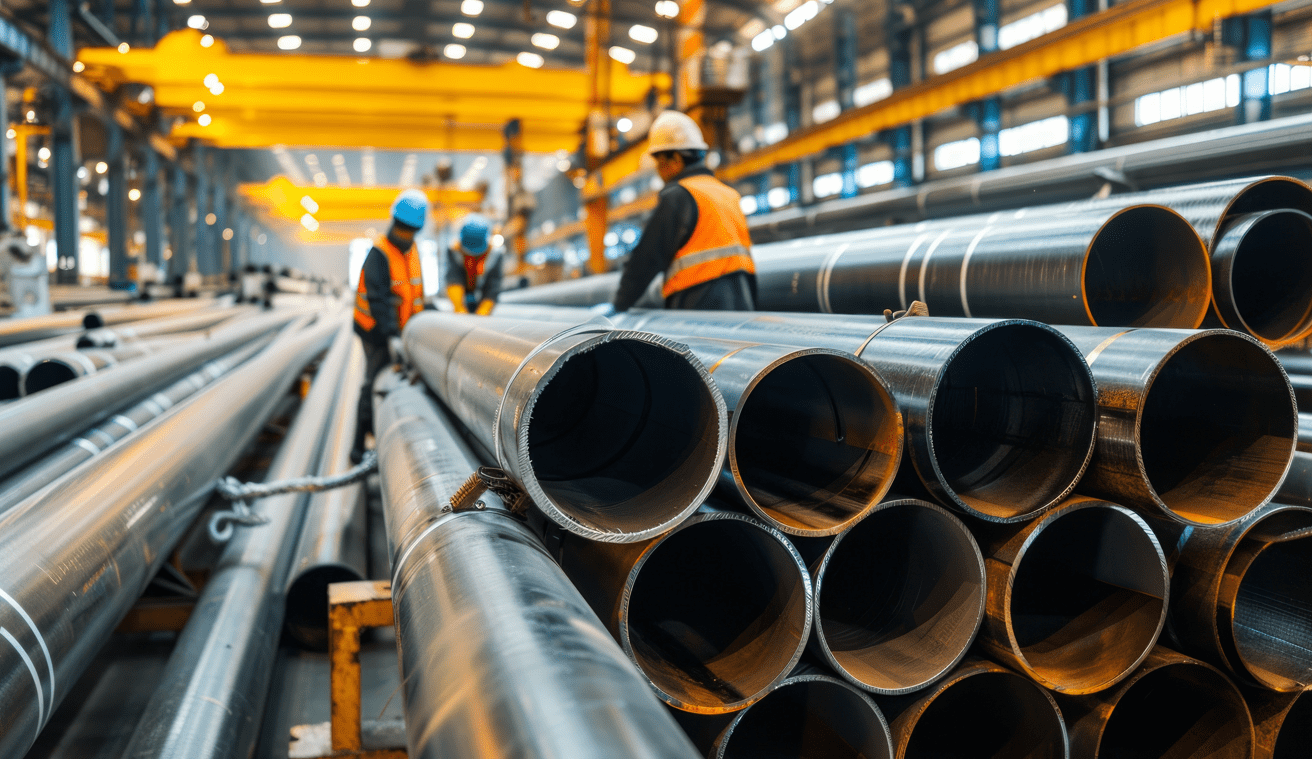Industrial pipes are essential components in various industries, playing a critical role in transporting fluids, gases, and sometimes even solids. Understanding the different types of industrial pipes and their specific applications is crucial for making informed decisions about which piping system best suits your needs.

- Overview: Steel pipes are known for their strength and durability. They are widely used in industries that require high pressure and temperature resistance, such as oil and gas, chemical processing, and power generation. -
Advantages: Excellent strength, high pressure tolerance, resistance to heat and corrosion (especially when galvanized or coated).
Applications: Oil and gas transport, steam pipelines, and chemical processing lines.
- Overview: PVC pipes are lightweight, corrosion-resistant, and easy to install. They are commonly used in water supply systems, drainage, and irrigation.
Advantages: Cost-effective, resistant to chemicals and corrosion, lightweight, and easy to handle.
Applications: Water supply, waste management, and irrigation systems.
- Overview: HDPE pipes are flexible and resistant to impact and chemical corrosion, making them ideal for underground installations.
Advantages: Flexibility, resistance to chemicals and abrasion, long service life, and suitability for trenchless installation.
Applications: Water and gas distribution, sewage systems, and mining operations.
- Overview: Copper pipes are renowned for their excellent thermal conductivity and corrosion resistance, often used in plumbing, HVAC, and refrigeration systems.
Advantages: High thermal conductivity, corrosion resistance, and a long lifespan.
Applications: Plumbing, heating systems, and air conditioning units.
Ensure the pipe material is compatible with the type of fluid or gas being transported. For example, avoid using steel pipes with highly corrosive substances unless they are appropriately coated.
Consider the maximum pressure and temperature the pipes will need to withstand. Steel pipes, for instance, are better suited for high-pressure applications.
Evaluate the environmental conditions, such as exposure to chemicals, moisture, or extreme temperatures. Materials like HDPE are suitable for harsh environments.
Consider the ease of installation and maintenance. PVC and HDPE pipes are easier to install and maintain compared to steel pipes.
Choosing the right industrial pipes is crucial for the efficiency and safety of any industrial operation. By understanding the different types of pipes available and their specific advantages and applications, you can ensure your piping system meets the demands of your industry.Stay tuned to Industrial Pipes Insights for more detailed guides and expert advice on industrial piping systems!ime and resources in maintaining your industrial pipes today, and you’ll see the benefits in the long run.








